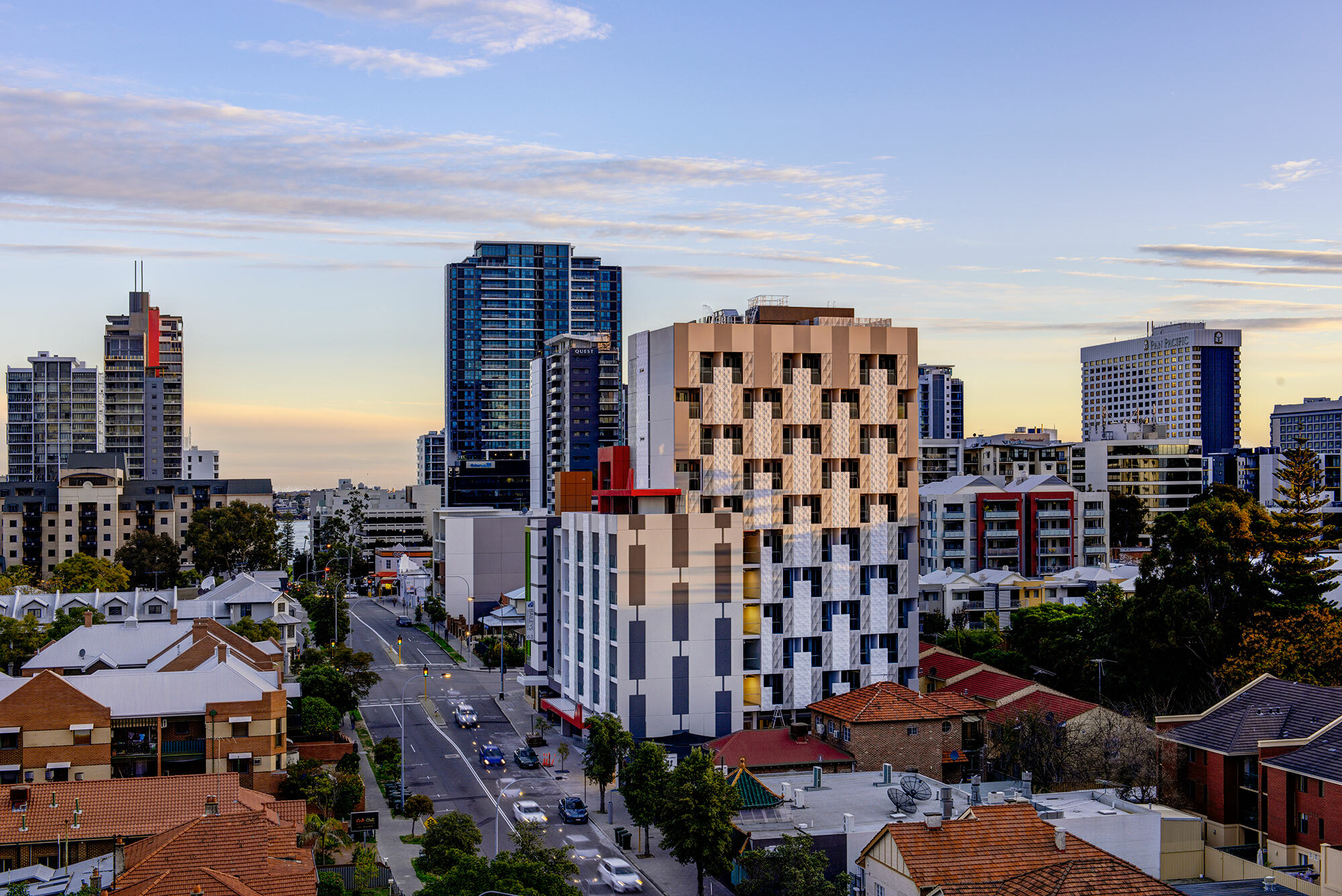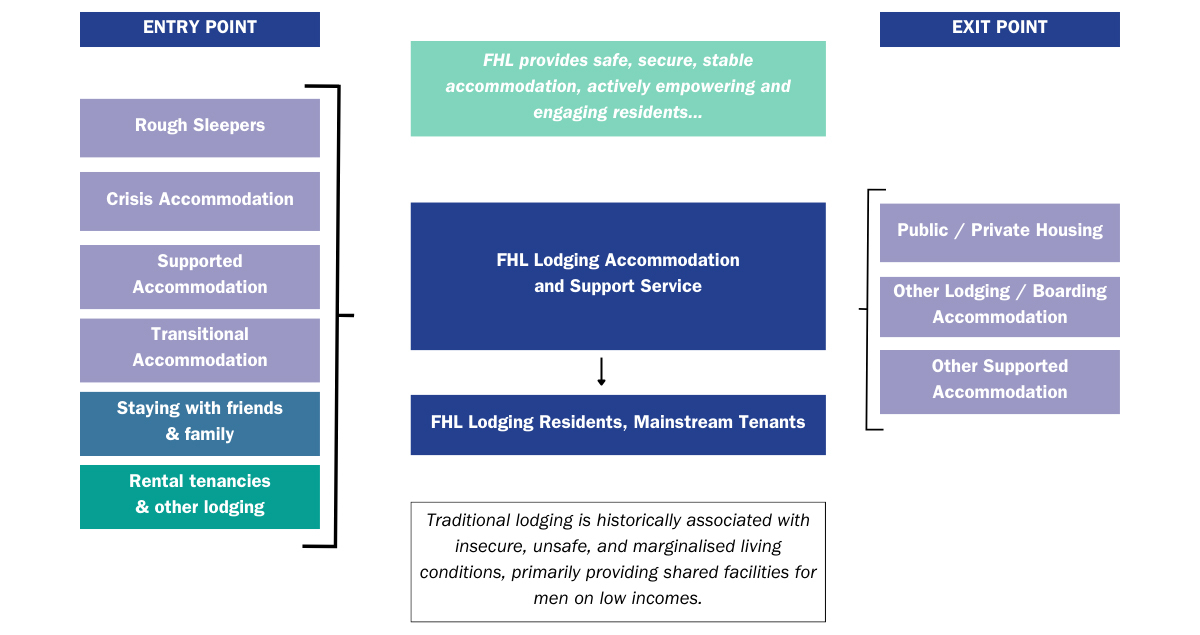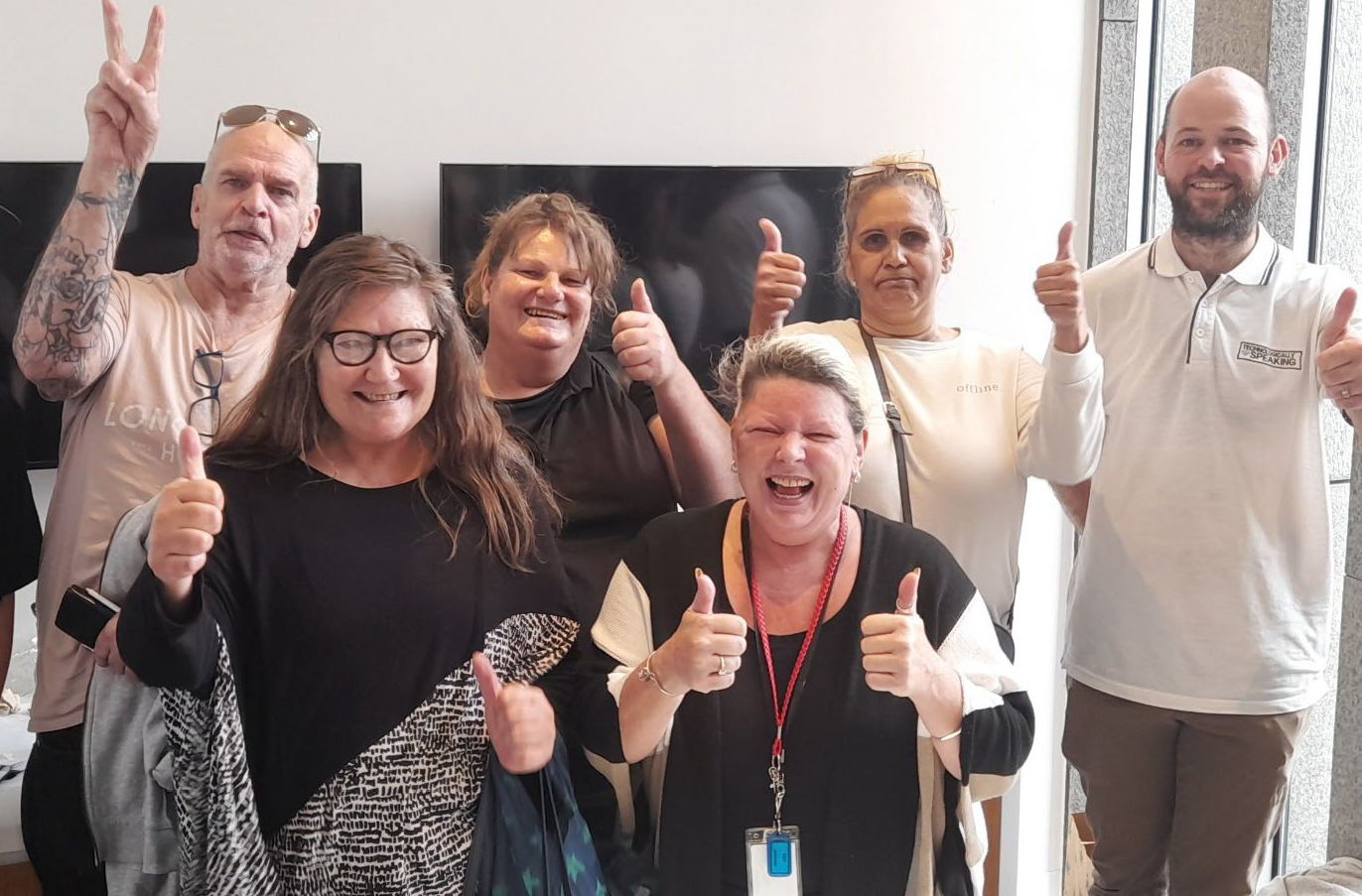Reimagining the role of lodging in ending homelessness: Evaluation of Foundation Housing's lodging and support services


The Centre for Social Impact at the University of Western Australia (UWA) was engaged to evaluate Foundation Housing's Lodging (FHL) Accommodation and Support Service. It provides a contemporary model of lodging houses and an effective long-term accommodation solution at low-cost.
The contemporary service model:
- Allows people to stabilise their lives and develop a long-term accommodation plan without the pressure of an imminent deadline
- Helps residents achieve stability and self-sufficiency by providing ongoing support and assistance
Aligning with key aspects of Housing First Principles, the model challenges the perception that these principles cannot be applied across different accommodation options for those experiencing homelessness.
Exploring Foundation Housing's Lodging Accommodation and Support Service Model
Traditional lodging is historically associated with insecure, unsafe and marginalised living conditions, primarily providing shared facilities for men on low incomes. However, Foundation Housing's (FHL) Lodging provides safe, secure, stable accommodation which actively empowers and engages residents.
The Service delivery model is unique in its focus on addressing the long-term accommodation needs of vulnerable populations through lodging and providing support services to foster stability and sustainability, supporting those at risk of homelessness to maintain and sustain their housing.
The focus on long-term outcomes sets Foundation Housing apart from providers who may only offer temporary or emergency accommodation.

The main aims of the model are to:
- Provide access to safe and stable accommodation, with no time limits
- Offer a variety of accommodation options
- Collaborate with a wide range of partners, and
- Meet the needs and preferences of its residents through active engagement
Snapshot of service elements
| Lodging | Support Service |
|
|
Evaluation Outcomes
The project evaluated the service as a long-term housing pathway for people exiting homelessness and assessed evidence that the service engagement and support are an integrated, low-cost service delivery model adhering to Housing First Principles.
CSI UWA’s evaluation process occurred in three stages:
- Determining outcomes
- Data collection and linkage, and
- Outcomes evaluation
Interviews, surveys, and case studies of residents, staff and stakeholders, and linkage of internal and external databases provided the data required to evaluate the service model, and the report presents findings on the service, housing, resident, and system-level outcomes.
1. Service-level outcomes
The evaluation presents key findings related to the following service-level outcomes:
- Resident profiles
- Wait times and transfers
- Sensitive allocation and lodging management
- Partnerships and collaborations
- Maintaining accommodation
- Street to Home program
- Community engagement activities
2. Housing and Resident-level outcomes
The lodging accommodation offered by FHL extends beyond temporary solutions, emphasising long-term housing stability, while the engagement and support services address the holistic needs of residents, promoting health, wellbeing, and social connection.

The housing and resident-level outcomes include:
- Empowered: It ensures residents are empowered through involving them in decisions that directly impact them, making them aware of housing options, their rights and responsibilities, and ensuring a positive resident-centred culture based upon values of inclusion, equity, respect, and dignity.
- Stable: Over 75% of residents surveyed regard their current lodging as long-term as they feel the lodging provided by FHL is safe, affordable, and the location is convenient.
- Safe: The Service provides safe and stable housing, without time limits, in combination with various engagement and support services. It's committed to helping residents achieve stability and self-sufficiency by providing ongoing support and assistance. As a result, 78.1% of residents surveyed feel safe where they live.
- Healthy: Through their partnerships and collaborations, ensures effective physical and mental health support services are provided on-site or with nearby providers. A substantial 79.4% of residents surveyed found the support services readily available, and an impressive 95.2% could easily access lodging accommodation support through their Lodging Coordinator when required.
- Connected and Equipped: The service organises and promotes an array of activities, events, and social gatherings that, not only cultivate a sense of belonging among residents, but also encourage their active participation in shaping their living environment. A noteworthy 84.8% of residents surveyed reported feeling a strengthened connection with other residents, 93.5% expressed a heightened connection with staff.
View the program logic and outcomes framework

3. System-level outcomes
By delivering accommodation that is safe, secure, and affordable, the Service addresses the essential needs of individuals struggling to secure suitable housing, and fulfils a critical role in the wider housing ecosystem. System-level outcomes include:
- Cost-efficient: The FHL model is a cost-effective solution to homelessness, with a daily cost of only $11.63 per person.
This is compared with $56.17 based on the Report on Government Services (ROGS) 2024 data, and $121.74 for the Common Ground Model (which provides a more intensive and onsite support base than the FHL model). It not only results in considerable cost savings but also helps in diverting individuals from chronic homelessness and the associated expensive health and justice services, thereby benefiting both the individuals and society at large.
- Alignment with Housing First Principles: The Service introduces a novel lodging model characterised by no time limits for stay length, timely and well-targeted individualised support, and an array of community engagement activities. The Service is aligned with the Housing First Principles, including: people having a right to a home; the separation of housing and support; flexibility of supports which are offered for as long as they are needed; residents having choice and determination; active engagement without coercion; social and community inclusion; and harm reduction.
The Service model is a cost-efficient service (when compared with other models) adhering to Housing First Principles, principles which have been shown to be highly effective in breaking the cycle of homelessness and promoting long-term stability. As a result, the Service is effective in reducing homelessness and risk of homelessness.
8 reasons Foundation Housing's Lodging Accommodation and Support Service is successful
The lodging accommodation offered by Foundation Housing extends beyond temporary solutions, emphasising long-term stability, while the engagement and support services address the holistic needs of residents, promoting health, wellbeing, and social connection. It's successful due to these 8 reasons:
- Comprehensive, person-centred approach
- Low-cost community housing, proven to reduce and prevent homelessness
- Accommodation is safe, secure, and affordable
- Long-term stability
- Tailoring services to individual preferences
- Collaboration with external organisations and agencies
- Optimised resources and reduced operational costs
- Mitigated the burden on government resources while simultaneously cultivating a sense of community among its residents
Revision:
Minor revisions have been made from an earlier released version of this report to account for (a) updated ROGS data, (b) corrected analysis of a survey item (regarding increased confidence to seek training/employment), and (c) removal of reference to the Foyer model.


